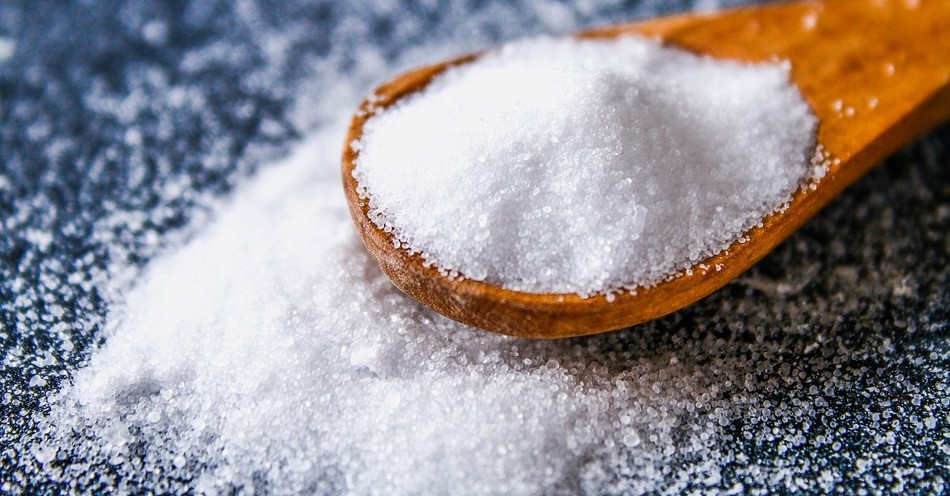Salt is available for various uses, from spa treatments to food seasoning. The Bible mentions salt in numerous verses, with each reference having a unique meaning. How do you use salt? Do you add salt to recipes? Have you studied the meaning of salt in the Bible?
What Did Biblical Cultures Use Salt For?
Over the years, salt has been used as a preservative, disinfectant, seasoning, bartering, and exchange, and as an offering. Historians also note that salt can signify loyalty, fidelity, value, and purity. Salt was also used in a covenant of friendship. Babies were sometimes rubbed with salt.
Salt was used in covenants between God and the people. “Don’t you know that the Lord, the God of Israel, has given the kingship of Israel to David and his descendants forever by a covenant of salt?” (2 Chronicles 13:5 NIV)
Where Do We See Salt in the Bible?
Hebrew people were known to have harvested salt while pouring seawater into areas and waiting for the water to evaporate so only salt could be found. Wounds were sometimes treated with salt. Roman soldiers were paid their wages with salt.
One of the first references to salt in the Bible is found in the Old Testament, where it seems to signify death. As a man named Lot sat at the gateway of the city, two angels came to Sodom and approached him. The angels shared that they would stay the night in the square. Lot insisted they stay at his home because he knew the approaching danger. Lot prepared a meal, including bread.
Lot was determined to protect the guests against the evil acts of men who surrounded the house. As Lot spoke with the men outside, the angels pulled him back into the house. Lot knew the city was in turmoil, and the angels warned him that it was about to be destroyed. Lot warned his future sons-in-law about the impending peril to them, but they didn’t listen.
The angels told Lot to take his wife and daughters and flee because punishment to the city was coming. Even as he hesitated, the angels grabbed the hands of Lot, his wife, and two of his daughters and led them to safety.
A warning was issued: “Flee for your lives! Don’t look back, and don’t stop anywhere in the plain! Flee to the mountains or you will be swept away!” (Genesis 19: 17 NIV)
Even with the warnings and chaos, Lot still asked for another place to go so he would be spared. The Lord began raining down sulfur on Sodom and Gomorrah. Every living person and vegetation was destroyed. Although Lot and his family had been told not to look back, his wife didn’t obey. Biblical scholars say that Lot’s wife disobeyed and was punished for her disobedience.
“But Lot’s wife looked back, and she became a pillar of salt.” (Genesis 19:26 NIV)
Salt as a signifier of death or ruin appears again when the book of Zephaniah talks about Sodom and Gomorrah. Zephaniah shares the warning from God that Moab would become like Sodom and the Ammonites like Gomorrah, with weeds and salt pits (Zephaniah 2:9).
The book of Judges describes the day Abimelek attacked the city, captured it, and killed the people. After destroying everything, he scattered salt over it.
Job asks if the food eaten without salt is without taste. Jeremiah describes a salt land where no one lives. Ezekiel refers to the swamps and marshes not being fresh because they will be left for salt (Ezekiel 47:11).
As with other seasonings, too much or too little salt can create different outcomes. While salt signifies death in the verses above, passages about salt being used in the Israelites’ services show it representing something else.
What Kind of Offerings to God Required Salt?
Old Testament law commanded the use of salt, referred to as the “salt of the covenant,” in grain offerings. Animal sacrifice offerings were to be seasoned with salt—perhaps to prevent disease or sickness from ingesting rotten meat.
Ezekiel shares that offerings must be presented before the Lord, and the priests were to sprinkle salt on them and sacrifice them as burnt offerings. (Ezekiel 43:24). A part of the temple offering included using salt (Ezra 6:9).
What Did Jesus Mean by Being Salt of the Earth?
The expression “you are the salt of the earth” has been used to describe someone or a group of people who are honorable and the best at what they do.
“You are the salt of the earth. But if the salt loses its saltiness, how can it be made salty again? It is no longer good for anything, except to be thrown out and trampled underfoot.” (Matthew 5:13 NIV)
Every word of Jesus is filled with wisdom. Scripture in Matthew reminds us that we are saved by Him and not condemned to sin.
Staying in the Word and having a relationship with God allows us to be helpful to others. When we lack dedication to God and rely only on ourselves, we cannot fully share His love and forgiveness.
In the Sermon on the Mount, Jesus shared that those who believed were “salt of the earth.” Living for God and obeying Him will allow more people to know God. We are called to “season” the world with His love. Sharing the love of God through words andactions can benefit others as well as the person showing expressions of His love.
How Can We Be Salt of the Earth Today?
Today, we can choose to believe and place full hope and trust in God. Although we will sometimes fail to honor Him, the decision to repent and ask for forgiveness is available.
The ways we communicate with others, the choices we make in responding to opinions that differ from ours, and the actions of helping others, caring for each other, and sharing His love and glory are opportunities to be the salt of the earth today.
Place God first in all areas of life. In each moment, seek His will. Pray and ask God for wisdom, discernment, and revelation. Know that God is present in every situation.
When discord arises, seek His peace and comfort to find rest and renewal.
“Blessed are you when people insult you, persecute you and falsely say all kinds of evil against you because of me. Rejoice and be glad, because great is your reward in heaven, for in the same way they persecuted the prophets who were before you.” (Matthew 5:11-12 NIV)
Some ways to be the “salt of the earth” today include daily prayer, showing peace in every situation, helping others in need, sharing your testimony of how God has changed your life, and expressing God’s love with words and actions.
Today, medical professionals have studied the effects of too much salt in the human body. Medicines that treat heart disease and low-salt diets have been found to lower blood pressure and heart rate. Moderation is key, according to physicians.
We must be alert and aware of how we use salt in daily life—whether in our foods and drinks or with words and actions.
A Prayer to Be the Salt of the Earth
Dear God, thank You for salt and its many purposes. Thank You for using different ways to show us how to extend love, forgiveness, and mercy. Help us to continue to shine Your light and be the salt of the earth. In the name of Jesus, Amen.
In His Name,
Melissa Henderson
Photo Credit: Getty Images/Detry26

Melissa is the author of Licky the Lizard and Grumpy the Gator. Her passions are helping in the community and church. Melissa is an Elder, Deacon, and Stephen Minister.
Follow Melissa on Facebook, Twitter, Pinterest, and at http://www.melissaghenderson.
This article is part of our Bible resource for understanding the significance and meaning of biblical phrases and ideas. Here are our most popular Bible articles to grow in your knowledge of God's Word:
Promises of God in the Bible
Is "This Too Shall Pass" in the Bible?
What Was the Ark of the Covenant?
Top 10 Bible Stories for Kids
“Iron Sharpens Iron” in Proverbs 27:17
"Fearfully and Wonderfully Made" in Psalm 139
“Be Still and Know That I am God” in Psalm 46:10
"No Weapon Formed Against Me Shall Prosper" - Isaiah 54:17



